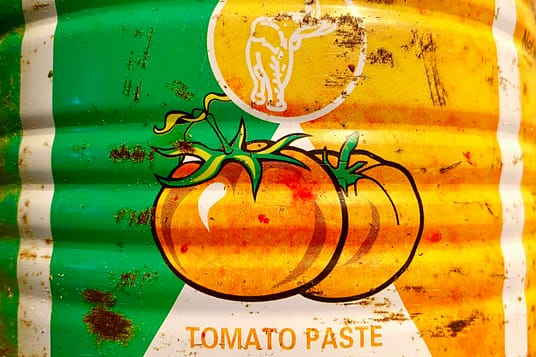
In Nigeria, tomato paste is an essential ingredient in many households, cherished for its ability to enrich the flavor of countless dishes, from the beloved Jollof rice to spicy stews and soups. However, beneath its vibrant red hue and savory taste lies a less savory truth about the contents of some brands of pastes available in the Nigerian market and their potential harmful effects on health.
Understanding Tomato Paste Composition
At its core, tomato paste should ideally be a simple and wholesome product, made by cooking down tomatoes to remove the water content and concentrating the flavors. The best quality tomato paste is pure and contains no additives, preservatives, or artificial colorings. It’s rich in lycopene, an antioxidant that has been linked to numerous health benefits, including reduced risk of heart disease and cancer.
The Issue with Additives
However, the reality of the tomato paste market in Nigeria is that not all products live up to this ideal. In the quest to cut costs and extend shelf life, some manufacturers add substances that could be harmful to consumers. These additives include excessive salt, sweeteners like high fructose corn syrup, artificial colors to enhance the redness, preservatives such as sodium benzoate, and even thickeners like starch to mimic the consistency of more concentrated paste. The inclusion of these substances can not only detract from the nutritional value of the paste but also introduce health risks to consumers.
Potential Health Risks
- Excessive Salt Intake: Many brands of tomato paste contain high levels of sodium to preserve the product longer. Consuming too much salt can lead to hypertension (high blood pressure), increasing the risk of heart disease and stroke.
- Sugar and High Fructose Corn Syrup: Added sweeteners can contribute to the risk of obesity, type 2 diabetes, and other metabolic disorders. While sugar in moderation is acceptable, excessive intake is undeniably harmful.
- Artificial Colors and Preservatives: Some artificial colors have been linked to behavioral issues in children and are suspected carcinogens. Preservatives like sodium benzoate may form benzene, a known carcinogen, when combined with vitamin C, also present in tomatoes.
- Thickeners: Adding starch to tomato paste dilutes its nutritional value and can be misleading to consumers who seek the health benefits of concentrated tomato products. For individuals with gluten intolerance or celiac disease, certain thickeners may also trigger adverse reactions.
Navigating the Tomato Paste Maze
Given these concerns, it’s crucial for consumers to become more vigilant about the paste they purchase and consume. Here are some tips for selecting safer, healthier tomato paste:
- Read Labels Carefully: Always check the ingredient list for additives, preservatives, and artificial colors. Opt for brands that list tomatoes as the sole ingredient, or those with minimal, natural additives.
- Choose Low-Sodium Options: To manage blood pressure and reduce heart disease risk, look for low-sodium tomato paste or adjust your recipes to use less if using a regular product.
- Opt for Organic: Organic tomato paste is less likely to contain harmful pesticides and is often made without artificial additives.
- Make Your Own: If you have access to fresh tomatoes, making your own paste at home is a straightforward process that ensures you know exactly what goes into your food.
The Role of Regulation
Addressing the issue of harmful additives in tomato paste also requires action at the regulatory level. Nigerian food safety and regulatory authorities need to enforce stricter standards and regulations on the production, labeling, and sale of tomato paste. Regular testing for harmful substances, clear labeling requirements, and public education campaigns can help protect consumers from the potential health risks associated with contaminated or adulterated paste.
While tomato paste remains a staple in Nigerian cuisine, its health implications cannot be ignored. Consumers need to be mindful of the potential dangers lurking in some commercially available tomato paste products and take steps to select healthier options. Meanwhile, manufacturers and regulatory bodies must work together to ensure that the paste sold in Nigeria is safe, nutritious, and free from harmful additives. By fostering a culture of transparency, quality, and consumer awareness, we can safeguard the health benefits of this beloved condiment for generations to come.